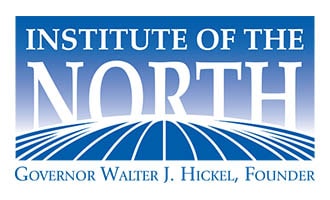Mayor Kristin Roymo of Tromso Kommune hosted 13 northern municipal leaders at the 2018 Arctic Frontiers, held in the Arctic capital of Norway. Participating leaders came from Anchorage, Lulea, Tromso, Vardo, Nome, Arkhangelsk, Tornea, Oulu, Kirkenes, Rovaniemi, Akureyri, Alta and Kotzebue. Canadian and Greenlandic mayors have attended previous meetings of the Arctic mayors and momentum is building toward a sustained local approach to northern governance and resilience.
The 14 leaders described a wide array of challenges, opportunities and priorities, with many resonating between communities. Areas of cooperation, knowledge exchange and cross-border project development include:
- Economic, infrastructure and resource development
- Resilience, sustainable development, inclusive growth, circular economy and smart cities
- University systems as anchors; scientific infrastructure, education and human capital
- Balancing environmental protection, resource development and economic growth
- Contending with and correcting misperceptions from outside the region
- Regional consolidation of authorities and responsibilities
- Cross-border international cooperation
- Transportation and telecommunications connectivity
- Tourism planning and clean mineral development
- Quality of life protections include access to healthy living resources
It was clear from the discussions that municipalities struggle to be heard at the national and international level, and that in the Arctic they must be good storytellers who together amplify one another’s’ perspectives. Russia has addressed this by forming an Association of Arctic Municipalities, which has been able to provide feedback to the federal government in the development of policy. Another good example is that of Barents cooperation
While that kind of inter-governmental communication is critical, municipalities also must take action independent of other levels of government. In many cases, this can be complemented by local, Arctic knowledge that is combined with new technological innovation. The Arctic is a source of solutions that can be exported to address the world’s challenges.
One of the compelling examples of the forum was the identification of smart city development as a path toward more sustainable, resilient communities. Smart Arctic cities will feature:
- A strong ICT sector that links with health, environment, and energy
- Innovation alliances between academia, business, and government
- COP 21 contributions and renewable energy development
- Digitalization that delivers system efficiencies for public utilities and services
- City and service design and planning
Northern mayors are most connected to northern peoples, and responsive to needs and hopes. Cooperation between municipalities may take many forms, including youth exchange, business development, and capital visits, but ultimately it will be a bottom up approach driven by northern peoples.
